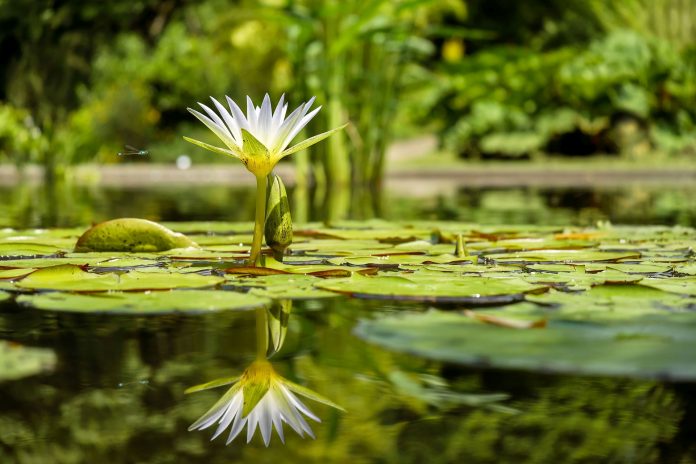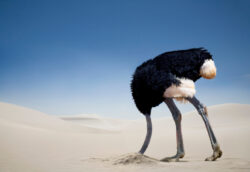We hear a lot about sustainability these days in terms of the economy, the environment, and society, but what is personal sustainability when it comes to us, the people who make up that society and determine what sustainability is?
Sustainability focuses on meeting the needs of the present without compromising the ability of future generations to meet their needs. The concept of sustainability is composed of three pillars: economic, environmental, and social—also known informally as profits, planet, and people. (1)
Is it possible to live and work in a way that is personally sustainable, not just in the short term but for the whole of our working lives? A way that sustains not only us, but all those around us – our relationships, children, families, friends, work colleagues and future generations of our profession?
Many of us live in a way that is not sustainable. We work very hard, seeing many patients a day and working long hours and days, taking little time off for rest and recovery, time with our friends and families and other pleasures in life. This takes a toll, sooner or later, and can lead to burnout, exhaustion, depression, drug and alcohol abuse, ill health, relationship problems, family discord … and we may find we are not able to sustain ourselves at work or at home in a way we would like to live.
How can we develop personal sustainability, so we can live in a way that keeps us healthy and vital and loving our work and our whole lives, day after day after day?
We can live and work in a way that is sustainable, by developing a rhythm and flow to our day that works for us, working at a pace and for a length of time we can sustain, not only for one day but day after day.
If we are in private practice, we have the luxury of being able to tailor our days to some degree. For some of us this may be seeing 20 people three days a week and for others it may be 80 people five days a week. It is for each of us to find our own way with this – the way we like to work, the rhythm and flow we can develop, the pace we can sustain, and the hours and days a week we are able to work without needing to prop ourselves up with too much coffee, sugar or alcohol and without getting too tired, stressed, overwhelmed or feeling cynical, jaded or burnt out.
Of course, this may not be so easy if we work in the public system, and are at the beck and call of not only the vast and unpredictable volume of people coming in the front door, but the demands of administrators for us to do more and more with less and less. The key here is to not waste any energy railing against the system or taking it head on, but to do what we can do when we can do it, to know when we can’t, and not make it personal against us or anyone else. If we work from the premise that everyone is doing the best they can, under difficult circumstances, we can find a way to work together that cares for our patients, supports each other and does not drain us. And when there is space to rest – be it in quiet moments, on quiet days or on days off – to take the opportunity to actually rest, rather than indulging in activities that exhaust us even more.
We can be one trick wonders when it comes to work. Most of us have studied medicine our whole lives and that is all we know. But that does not mean we can’t have other interests in life. It is important to develop interests we love that sustain us in our life away from work and so that we have pleasures to enjoy once we (eventually) retire.
Some of us can be relatively sedentary at work and others may need to be physically fit and strong, depending on the type of work we do. Either way, it is vital that we move our bodies and keep them fit and strong so that we are able to sustain ourselves physically throughout our working day. Developing an exercise routine is key, at a regular time that works for us, whether that means getting up early in the morning to exercise before work, or walking to and from work, or doing something active after work, be it going to the gym or for a swim on the way home or going for a walk after dinner while our food digests.
We all know what food supports us and what does not, and we all know that we are naturally designed to drink water and not much else. Whether we live by this or not is up to us, but eating and drinking in a way that supports and sustains our bodies and does not make them work too hard is a key part of living a personally sustainable life.
We are all divinely designed to love and be loved, and surrounding ourselves with people who love and care for us and whom we love, supports us as human beings to live rewarding and sustainable lives.
The key to personal sustainability is understanding that we are a microcosm of the macrocosm, an indivisible part of the one whole. The way we look after ourselves sustains not only us, but all those around us. We create our own economy, environment and society that includes our body, our work and our home lives. And because we work with so many people – our colleagues, staff and patients, as well as the wider community – the way we are with ourselves, the way we sustain ourselves, affects all of these people too. We can take care of ourselves and live in a way that inspires other people to take care of themselves too, so that the ripples of personal sustainability radiate out from us to everyone we meet.
Reference:
- What is sustainability? Accessed at:
https://www.mcgill.ca/sustainability/files/sustainability/what-is-sustainability.pdf










This is wonderful! So many takeaways I can try to integrate into my life. A similar resource that comes to mind is the Sustainabilitist Hub, which tackles personal sustainability from the different angles of life.